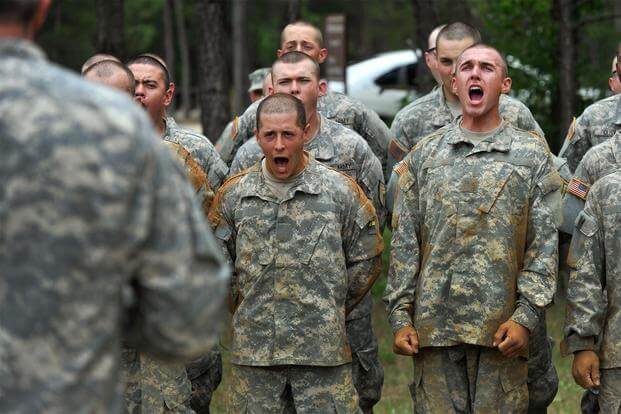Many teens who consider joining the military never even talk to a recruiter.
School, work and family obligations, as well as not meeting the height, weight and physical standards, are the main reasons why people choose not to serve immediately after high school.
Many potential candidates believe they are "too old" to serve if they don't join between ages 18-22. This could not be further from the truth.
The age range for joining the military is quite large: 17 years old on the low end and up to 39 on the high end.
See the wide age ranges for the different branches of active-duty military:
Army: 17 to 35
Navy: 17 to 39
Air Force: 17 to 39
Marine Corps: 17 to 28
Coast Guard: 17 to 27
Some military groups and officer training programs decrease the age limit; those groups tend to favor a younger candidate. The military service academies are one example. All of them have an age range of 17 to 23 to enroll as a freshman. These are four-year colleges and commissioning programs. If you wait to start your freshman year at age 22, you will graduate at age 26.
Some of the special operations units have lower maximum age limits, similar to the Marine Corps' age standards. In fact, Navy SEALs put an upper limit on the age for students to attend SEAL training at 29 years old, but the Army Special Forces' limit is 36 and the Air Force is 39. Army Rangers can begin training at age 41.
There is no one-size-fits-all rule for age requirements in any branch of service or their corresponding special ops units. There are even age waivers given to extremely qualified candidates with life, cultural and work skills that will be of use to one of the specialized units.
Education: You Have Time to Improve Your Grades and Finish School
Many potential candidates think they had to be a good high school student in order to join. Though you must perform to a standard on the Armed Services Vocational Aptitude Battery (ASVAB) if you're seeking a particular job, a high school diploma is enough to enlist in any of the services.
If you did not graduate high school the traditional way, you first will need a General Educational Diploma (GED). Since the process of joining is fairly competitive, the GED is typically not enough to qualify, and you will need a semester of community college to earn up to 12 credits. This additional education will make you more qualified for some of the more competitive branches of service.
Other Reasons for Delay: Medical, Criminal, Height and Weight, Physical Fitness
Age is not the typical reason that someone will not qualify for military service. But the medical disqualifications list is long and complex. A military doctor will determine whether you are qualified to join the military during your initial medical screening.
And having an arrest record or large amounts of debt also can stop the enlistment process from moving forward.
Failing to meet the height and weight standards or the physical fitness standards are now among the biggest reasons why young men and women are unable to serve their country.
If you really want to serve, you have time to get your weight under control and your physical fitness levels within the standard. Do not think that if you are 24 years old and overweight that you cannot serve.
Just in my own personal experience, there have been numerous people who have lost more than 100 pounds in a year and qualified to serve their country. In the end, it comes down to how badly you want to serve your country. If you want it enough, you can make it happen.
See Related Articles Below on Fitness Standards and Training Ideas
Beginner fitness programs -- Every expert was a beginner at one time. Whether it is a lower level of physical fitness you are trying to improve or you need to lose 80- to 100-plus pounds in order to be within standard, you have to start somewhere. Moving more and eating less (but better food) is a good first step toward losing weight.
Army fitness tests -- Preparing for Army service in the next year or two?
Basic training/boot-camp preparation -- Show up in shape and bring your A Game to your first military training program training. Start your journey well-prepared.
Progressing with your fitness and maintaining abilities -- Many people just need a change in their physical training to prepare specifically for military training. Learn how to progress with military training while maintaining your other athletic strengths.
Preparing for Special Ops/Special Forces (any branch) -- You have to be on the advanced spectrum of physical abilities to perform well enough to make the cut in any special ops branch of service. Make sure you are prepared.
Stew Smith is a former Navy SEAL and fitness author certified as a Strength and Conditioning Specialist (CSCS) with the National Strength and Conditioning Association. Visit his Fitness eBook store if you're looking to start a workout program to create a healthy lifestyle. Send your fitness questions to stew@stewsmith.com.
Want to Learn More About Military Life?
Whether you're thinking of joining the military, looking for fitness and basic training tips, or keeping up with military life and benefits, Military.com has you covered. Subscribe to Military.com to have military news, updates and resources delivered directly to your inbox.



















